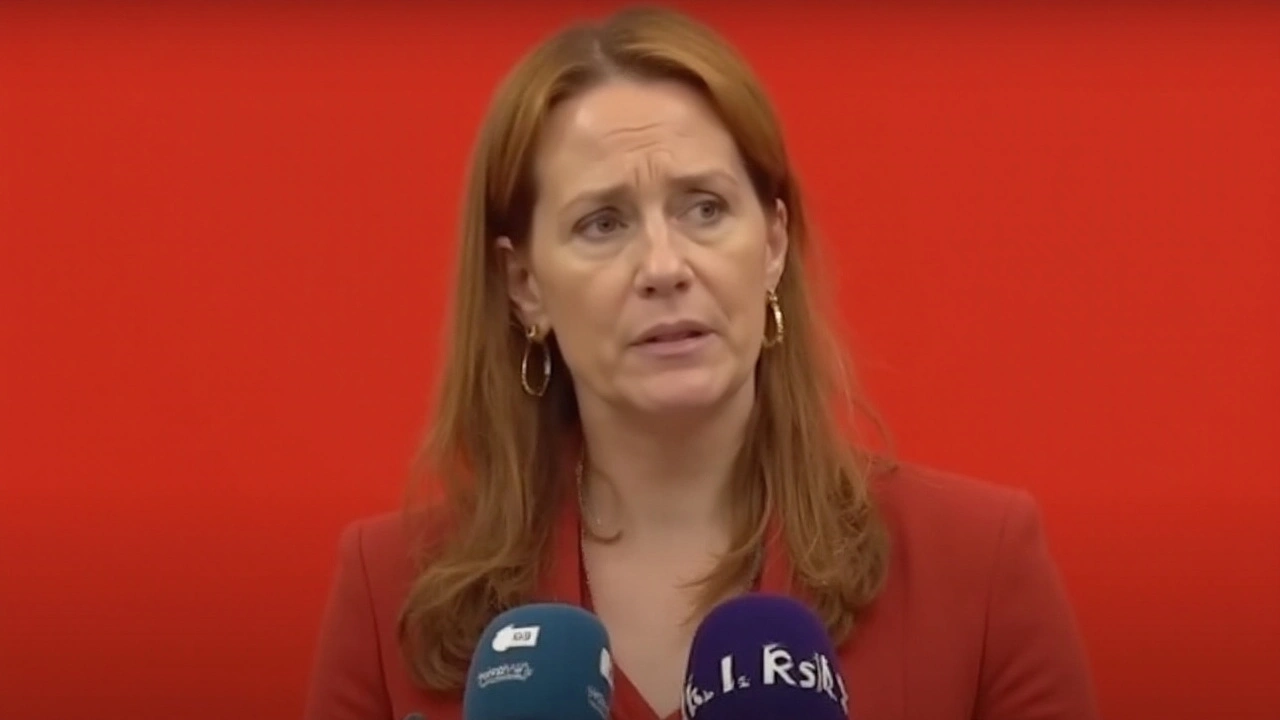
A shock exit over a tax gap
Angela Rayner resigned as Deputy Prime Minister and Housing Secretary on Friday after an independent standards inquiry found she did not meet the ethical bar expected of government ministers over a property purchase last summer. The decision followed her admission that she underpaid stamp duty on an £800,000 flat in Hove, potentially saving about £40,000 before seeking expert advice and referring herself for investigation.
The independent adviser on ministerial standards, Laurie Magnus, handed his findings to Prime Minister Keir Starmer on Friday. His report concluded that while Rayner acted in good faith, she should have obtained specific and specialist tax advice at the point of purchase. That gap in judgment, he said, fell short of the ministerial standards she was required to uphold.
Rayner accepted the outcome and stepped down from her government roles. In her resignation letter, she wrote: "I take full responsibility for this error." Starmer, who accepted her decision, said she was right to go but added he was "very sad" to lose her from government, praising her record and signing off his note to her "with real sadness."
At the heart of the issue is stamp duty land tax (SDLT), which the UK charges on property purchases. Rates rise in bands with the value of the home, and there is an additional surcharge for second homes. That extra levy is significant on higher-priced properties and can add tens of thousands of pounds to the bill. Rayner initially received legal advice that the standard rate applied. After media scrutiny, she sought specialist counsel who concluded that the transaction should have attracted the higher levy for a second property.
Why does this matter beyond the sums? Ministers are judged not only on intent but on diligence. The adviser accepted that Rayner did not set out to avoid tax. Still, the ministerial code expects sitting ministers to take professional, specific advice on sensitive matters—especially personal tax—because even inadvertent mistakes can erode public trust. That gap between good intentions and good process is what pushed this into resignation territory.
Rayner’s departure also stings because of her profile. She was one of the government’s most direct communicators and a central voice on housing policy. She has also been outspoken about tax compliance, frequently criticising political opponents accused of falling short. That contrast will not be lost on voters.
- Summer 2025: Rayner buys a flat in Hove for £800,000 and pays stamp duty she believed to be due based on initial legal advice.
- Following media questions, she seeks specialist tax advice and is told additional stamp duty is payable because it counts as a second property.
- Wednesday: Rayner discloses the shortfall and refers herself to the independent adviser on ministerial standards.
- Friday: The adviser reports to the Prime Minister, concluding she acted in good faith but failed to meet required standards by not obtaining specific advice in advance.
- Friday: Rayner resigns as Deputy Prime Minister and Housing Secretary. Starmer accepts with regret.

Fallout for Labour and what comes next
Politically, the timing is rough. Rayner held the housing brief during a period of intense pressure on supply, affordability, and planning reform. The government has signalled big ambitions on housebuilding and renters’ protections—work that now needs a new lead minister. Expect a rapid appointment to keep legislation and delivery on track.
On the tax side, underpaid stamp duty is typically settled with HM Revenue & Customs through an amended return and payment of the balance, usually with interest and, depending on circumstances, potential penalties. The inquiry’s finding that Rayner acted in good faith suggests this was a misjudgment rather than deliberate avoidance, but HMRC decisions on penalties are made independently and case by case.
The standards process itself is straightforward but unforgiving. The independent adviser investigates and advises; the Prime Minister decides the outcome. In practice, ministers who fall short—especially on personal tax—often choose to resign to avoid prolonged damage to the government’s credibility. Recent history shows how quickly tax controversies can end political careers. In 2023, Conservative Party chair Nadhim Zahawi was forced out after an HMRC penalty came to light. Even where intent is disputed, optics and trust drive the decision.
Rayner’s case carries extra political heat because she became a symbol of Labour’s promise to restore integrity after years of standards rows in Westminster. Her departure gives opponents a clear line of attack on competence and consistency. For Labour, the immediate task is to contain the fallout: steady the housing portfolio, demonstrate that tax obligations will be met in full, and show that the same rules apply to everyone—from cabinet to backbenches.
The public will want clarity on a few basic points: how much was underpaid, how quickly it is repaid, and what safeguards ministers have in place to avoid similar errors. The report already answers a key question—there was no finding of deliberate wrongdoing—yet it also underscores a simple expectation: ministers must get the right advice before the money changes hands, not after.
Rayner’s resignation applies to her government roles. There was no suggestion in Friday’s exchanges that she would leave her seat in Parliament, but the political recalibration starts now. Her allies will argue that owning the mistake and stepping aside was the responsible choice. Her critics will call it hypocrisy after her attacks on tax underpayments by opponents. Both things can be true: the standards bar is high, and the consequences are immediate when ministers fall short—even if they acted in good faith.
For voters, the takeaway is a reminder of how strict UK ministerial standards have become around personal tax matters. The sums can be complex, especially on property purchases, where a second-home surcharge can swing the bill by a large margin. The principle is simple, though: if you hold power, you are expected to anticipate those complexities—and get them right.

Write a comment